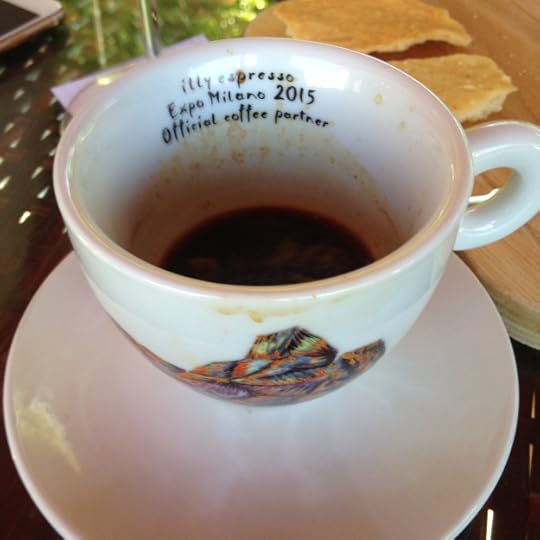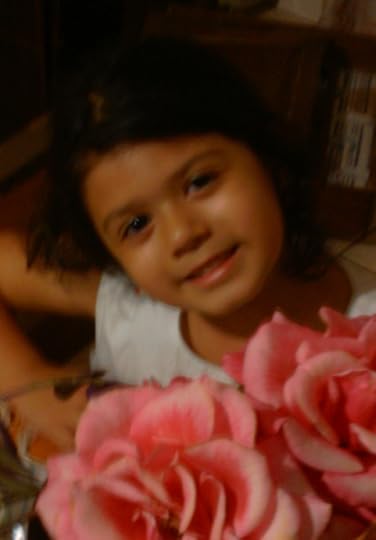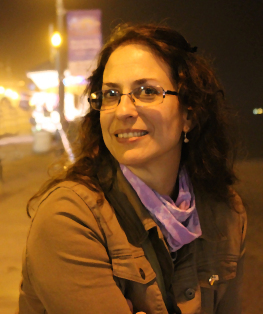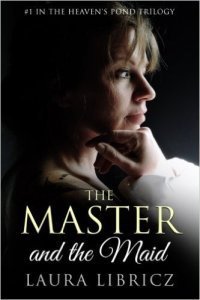Laura Libricz's Blog, page 13
May 13, 2017
Laura Libricz – #RRBC “SPOTLIGHT” Author Blog Tour Day 7
I’m so happy to have Laura Libricz as my guest today. As you can see, I’m encouraging you to linger longer, savouring a cup of espresso from Umbria, Italy and enjoy the lovely roses carefully selected for you by a special little girl!


This is Laura’s seventh and final day of her RRBC SPOTLIGHT Author Blog Tour. By now, many of you have got to know her better and if you like historical fiction, you’ll definitely be intrigued by her well-researched first book, THE MASTER AND THE...
May 8, 2017
Meet Author Laura Libricz #RRBC
I’d like to thank Brenda B. Taylor for hosting me today!
Welcome to Day 2 of my #RRBC “SPOTLIGHT” Author Blog Tour. I’d like to thank my host and the RRBC for this great honor. Today I’d like to talk more specifically about writing historical fiction. History is my passion right now and I’d like to share some of the sources I use when I research.
Now, judging by the images and the books that are popular today, can you imagine how someone 400 years from now will view our society? How will t...
May 7, 2017
With much joy, I introduce Laura Libricz, #RRBC’s “Spotlight” Author!
I am thrilled to welcome Laura Libricz, Rave Reviews Book Club “Spotlight” Author, on today’s stop of her blog tour. Laura is an amazing, supportive member of RRBC who generously promotes fellow authors. I consider it an honour to shine the “Spotlight” on her today.
With much joy, I introduce Laura Libricz!

Welcome to Day 1 of my #RRBC “SPOTLIGHT” Author Blog Tour. I’d like to thank my host and the RRBC for this great honor. To kick off this blog tour, I’d like to talk abou...
April 29, 2017
Walpurgisnacht #MayDay #Witches
[image error]
What comes to your mind when someone mentions the 8th century? Could it be the introduction of the triangle harp by the Picts in Scotland? Or maybe the reign of Charlemagne, King of the Franks. Or the popular epic poem Beowulf, which could be as old as the 8th Century? Or marauding Vikings invading the coasts of Europe? Or of the Bendedictine nun and English missionary to the Frankish Empire Walburga, later to be canonized on May 1, 870, one hundred years after her death?
St. Walburga was bo...
April 21, 2017
Magic Me a Meal #history #food
[image error]
What’s for dinner tonight?
Have a look in the pantry, see what you have, what you’re hungry for, and throw together something delicious. There’s a German idiom for just this situation that goes: schnell ein Essen zaubern! And that more or less means: magic me a meal! Let’s go back to the 17th century, specifically in Franconia, Germany: the absence of mod-cons, the hardship and toil and war, and eating whatever one is offered. How can we make a days-old leg of mutton or an old rabbit and som...
April 10, 2017
St. Stephen’s #Cathedral in #Passau #MondayBlogs
A documentary about St. Stephen’s Cathedral with music from Quetsch-Bassiges GraZien Ensemble www.blasmusik-woelfl.com and thanks to Pia Olligschläger from the Passau Tourismus e.V. www.tourismus.passau.de
Situated in Lower Bavaria where the river Ilz and the river Inn join the Danube lays the city of Passau. Built on the highest point in the old town is the St Stephen’s Cathedral. St. Stephan’s as we see it today was built in 1668 after a devastating town fire destroyed the late gothic cath...
April 3, 2017
What Inspires a Novel? #MondayBlogs #GermanHistory
Medieval and early modern Nuremberg was considered a free imperial city, an independent city-state, until its absorption into the Bavarian kingdom in 1806. As an independent city-state, Nuremberg was free to rule itself without being subordinate to the surrounding territorial leaders. The only one they had to answer to was the Emperor of the Holy Roman Empire.
In Nuremberg a closed caste of merchant families, termed ‘patricians’, ruled the city. Only members of these families could be part o...
March 24, 2017
What inspires the setting of a story? #bookworm #booklovers
Sichartshof, eine verschwundene Ortschaft
At the base of the low mountain range Steigerwald, in a fertile little hollow called the Edelgraben, there once stood a sheep farm. The first inkling of this farm appears in the Dachsbach registry in 1450 as ‘Sigartzhoffe’ belonging to a man named Peter Sighart. The good man paid a chicken and some grain to settle his taxes.
Over the years, thorough searches in the archives have produced a few registry entries, a sentence here, a mere crumb of inform...
March 20, 2017
What Inspires a Novel? #video #history #MondayBlogs
The Weissgerbergasse is a street in the old town in Nuremberg, Germany. It means Tanners’ Lane in English. It is the inspiration for the Tannery Row, a setting in the opening scenes of the historical novel, The Master and the Maid.
This medieval street was named for its inhabitants, namely the Weissgerber. They were tanners who specialized in a tanning process using salts and alum to create soft, white leather for gloves, aprons and bookcovers.
Tanneries needed a lot of water and many of...
March 14, 2017
#booktrailer The Master and the Maid #historicalfiction
The Thirty Years War. Known as The Great War in Germany up until the 20th century. Still regarded as the most devastating era in Germany history. We know what the history books say. We know what the church fathers say. But what really happened?
Imagine life in the 17th century, through this revolutionary time in history:
1600 years after the dawn of Christianity, 200 years after the invention of the printing press. 100 years after the protests of Martin Luther. Nuremberg, Germany was the c...







